Retiring to Canada may not be as popular an idea as retiring to Spain or France. However, certain advantages of Canada can make it a perfect retirement destination.
If you are a nature lover, if standards of living are really important to you, and you want to make sure that your pension income in retirement works as best as it can for you, then Canada is a strong competitor.
Whilst Canada has certainly not been immune to the global financial crisis, it has weathered the storms on the real estate, economic, and jobs front far better than either the UK or America. This naturally has a knock-on effect in terms of public feeling in the country.
Proof of this has been delivered in the form of a survey conducted by the 6th largest bank in North America, which found that, on the whole, over 70% of those who have chosen to retire in Canada find that life is exactly how they planned it to be.
Monetary concerns are not uppermost in a retired Canadian’s mind, it seems – and naturally enough, lack of such a significant worry can go a very long way towards happiness.
Can retiring to Canada be the right option for you?
If you’re looking for a decent standard of living for a fair price, a laid-back yet sophisticated country, a place where you can grow old gracefully and with dignity, a nation with lively towns and cities and plenty of stunning natural attractions – then yes, Canada could be the right choice for you.

In this report, we explore everything Canada has in its favor as a retirement destination.
The aforementioned survey into the well-being of Canada’s retirees and their attitude towards life in retirement revealed that the majority of retirees were able to afford the desired lifestyle in retirement.
They were not forced to live beyond their means because the cost of living was within reach. Add to this good quality healthcare, plenty of activities, and good communities – and you will get a perfect recipe for retirement.
The pros and cons of retiring to Canada
The cost of living in Canada, from taxes to utilities, from groceries to eating out, is slightly cheaper than in the UK or in the USA on the whole.
Property prices are also more favorable as long as you don’t decide to buy prime property in a major city!
You can make your money go far further in Canada if you step off the beaten track and out of ‘commuterville.’
Canada’s public healthcare is very good. However, as with many public systems, it has its problems.
Private health insurance is recommended for those who want to avoid waiting lists. Private health plans in Canada are cheaper than in the U.S.A. You don’t need to have full coverage if you don’t want to. Various supplemental plans are available too.
Canada is a popular choice with expats of all ages. This means you’ll have instant access to potential friends and like-minded people who can help you settle in and make the most of your new life.
Explore expat forums to find friends ahead of a move, and consider joining in with pre-planned social activities in your new community to enable you to build social contact and develop the friendship links which are so critical to us at every stage of life.
Make sure you know very well what the lifestyle in Canada is really like. Canadian climate can be a tough challenge for those unaccustomed to hush winters with snowstorms and lush summers with abundant mosquitoes.
You might also wish to learn and understand more about Canadian culture before you move to soften a probable culture shock.
Remember that whilst the dream of living in a log cabin in the wilds of Canada may always have been your ideal, such a home may be inaccessible for large parts of the year.
It is certainly not ideal for a retiree who may find they need increased access to services and facilities in the towns and cities as they age.
Perhaps such a dream can be lived out every year on holiday instead?
In terms of accessibility – if you come from Europe, although Canada is regularly serviced with direct flights from the major airports in Europe, it’s still quite a long flight away. Think carefully, if you need to see your friends and family often, can you afford to do so?
Although flight prices are slashed outside of school and public holidays, it’s still pretty expensive. If you want to keep in close touch, become a frequent flyer with your favored airline and collect bonuses and air miles that should reduce the overall cost burden of your travel.
For the US neighbors, Canada is on the doorstep and is very easy to access. This is one of the main reasons US citizens love retiring to Canada.

Visa and residency for retiring to Canada
Visa and residency is a big question for those willing to retire to Canada. Simply speaking, there is no retirement program or retirement visa in Canada for foreigners, which makes the whole thing complicated and outright expensive.
The best way to retire to Canada is to be sponsored by your children who are resident in Canada.
How your children can sponsor you to retire to Canada
Your children or grandchildren can be your sponsors if you want to retire to Canada. They must:
- Be at least 18 years old
- Live in Canada
- Be Canadian citizens or permanent residents of Canada
- Have enough money to support you and other dependents in the family. For this, they need to provide proof of income for the last three years). You can find how the income is calculated on the official government site.
When your children sponsor you to come to live in Canada, they must promise to support you financially for a period of time, no matter what your financial position is.
Even if you are really well-off and able to support yourself fully, it’s your children who, in the eyes of the Canadian government, must be responsible for all your basic needs. It is called an undertaking.
The undertaking commits your children to do the following:
- provide financial support for their sponsored family members for 20 years, starting when they become permanent residents;
- repay any provincial social assistance (money from the government) that their sponsored family members get during that time.
Also, you and your children sign the sponsorship agreement in which children agree to provide for your basic needs while you agree to make every effort to support yourself.
When you apply, you’ll have to complete and sign a form that includes the undertaking and the sponsorship agreement.
Other ways to obtain Canadian residence
If you don’t have children living in Canada, your option is either to plan your retirement ahead and immigrate to Canada as a skilled person well before retirement age or choose one of the numerous business immigration routes.

Business immigration offers permanent residence in Canada.
You can choose which route suits you best: the Quebec Immigrant Investor Programme (QIIP), Quebec Entrepreneur Program, Quebec Self-Employed Persons, Provincial Nominee Entrepreneur Program, or the Federal Immigrant Investor Venture Capital (IIVC) Pilot Programme.
Most entrepreneur and self-employed programs are aimed at individuals who can establish and operate a business in Canada and have enough money to do so.
The investor program is designed for the super-wealthy. They are required to make a passive investment with no obligation to establish a business.
You can read about all these programs in detail in our Canada Visa Guide.
There is another way to immigrate to Canada, and it’s becoming more popular despite the complexities and the paperwork required.
Wealthy business immigrants can buy or establish a new business in Canada and apply for a temporary work visa as management employees under federal ‘owner-operator’ policies.
After a period of time, applicants may qualify for permanent residence under a provincial program or as a federal skilled worker under Express Entry.
The easiest way to retire to Canada – go part-time
As you can see, if you don’t have children or grandchildren who are Canadian residents or a couple of million stashed in a bank account to buy a business there, retiring to Canada and obtaining a permanent residence might prove really tricky.

However, there is a way to skip all this annoying paperwork and still enjoy living in Canada, but only if your attitude to retirement is flexible and you are prepared to go part-time.
You can enter and stay in Canada for up to six months without a visa or any additional paperwork if you are a citizen of certain countries, including the EEA countries, the UK, and the United States.
You will, however, need an ETA (Electronic Travel Authorisation) if you are arriving in Canada by plane.
Six months is enough to travel and get to know Canada well enough, try out different locations, and see the best places to live in Canada with your own eyes. You will be in a better position to judge whether you want to retire to Canada permanently.
You can also skip the winters and spend them somewhere really warm or back in your own country enjoying time with your family and friends.
Choosing a part-time retirement will still let you buy your own home in Canada that you can rent out when you’re not in the country. It’s even possible to get a mortgage.
Your pension options when you retire to Canada
If you want to retire to Canada permanently and manage to find a way to do so, you will actually be able to qualify for Canada’s Old Age Security (OAS) pension.
You are entitled to it even if you have never worked in Canada if:
- You are 65 or older;
- You have lived in Canada for at least ten years since the age of 18;
- You are a Canadian citizen or legal resident at the time your application is approved.
Your state pension
If you have a state pension from your home country, you need to research the options for how you can draw it in Canada.
For example, if you are a UK citizen, your UK state pension can be claimed by contacting the International Pension Centre.
You need to decide whether you want your state pension to be paid in your Canadian bank or in your home country.
If you choose your Canadian bank account, you’ll be paid in Canadian dollars, and the amount you get will vary from month to month due to the fluctuation of exchange rates.
It makes total sense to opt for your state pension to be paid to your Canadian bank account if you retire there permanently. While if you do a part-time retirement in Canada, then your state pension can be paid into the bank account of the country where you reside the longest during the year.
Living between two countries requires careful management of your money transfers; otherwise, it can become very costly. Read how an international bank account can help you manage your money.
Your private pension and retirement in Canada
If you are planning to retire to Canada and you’re a UK citizen, unfortunately, there is no longer an option for you to move your pension to a Canadian scheme.
Canada was removed from the QROPs list in February 2017.
What you can do instead is to transfer your pension to a UK international self-invested personal pension (International SIPP). You can also move it to a third country. However, you can end up paying a 25% exit tax.
If you have questions or need more information about your private pension options, read more about your possible pension options abroad.
Pension income and taxes in Canada
If you reside in Canada permanently and your country of domicile has a Double Taxation Treaty with Canada, then your pension income will be taxed according to the treaty.
In most cases, it means you will be subject to Canadian taxation rules and won’t be taxed by your country of domicile.
If you do a part-time retirement in Canada, you will most likely be a tax resident in the country where you spend the most time in the year. Be careful to make sure you know where you qualify as a tax resident not to avoid getting in trouble with the tax authorities.
It’s also worth looking at the provincial tax rates, as every province in Canada has its own tax imposed on top of the federal income tax.
For example, if you choose to live in Alberta, you would be paying one of the lowest income taxes compared to other provinces. While living in Ontario comes with higher taxes.
How much money do I need to retire in Canada?
The amount of money you need to retire in Canada is entirely based on your circumstances. However, as a general rule, you’ll want at least 70% of your pre-retirement income, assuming you don’t have to pay rent or a mortgage.
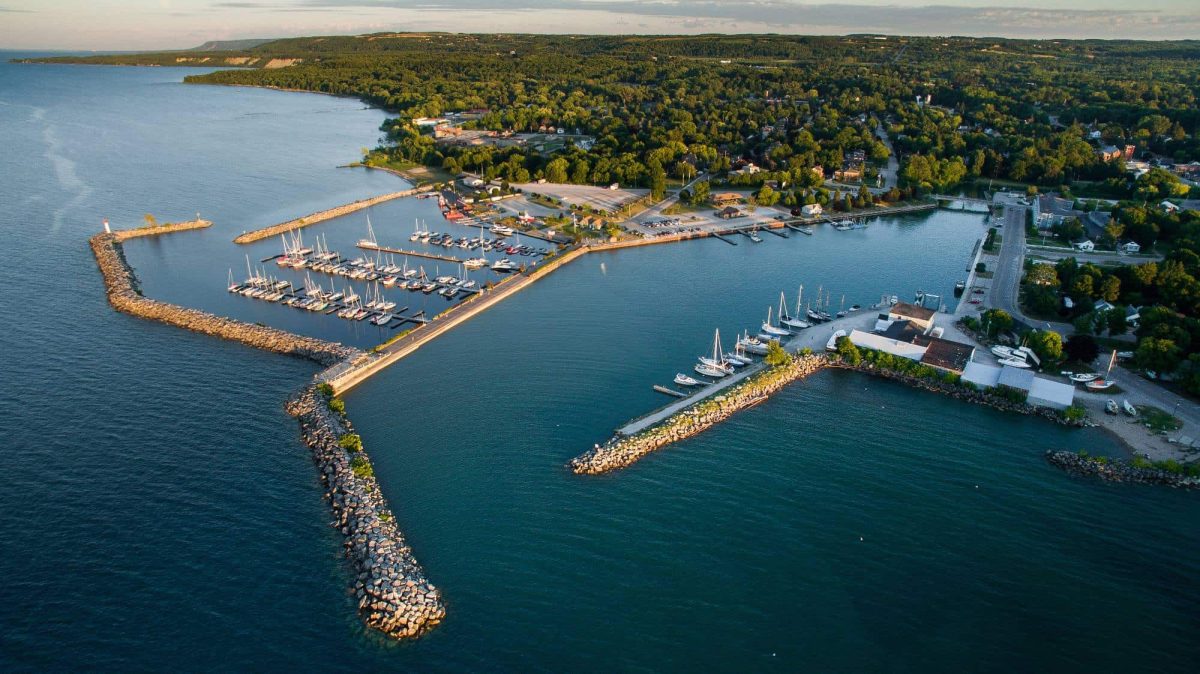
When applying for your visa, you’ll need proof of funds. This means having at least $13,000 (or $16,000 for a couple) in your bank account. Of course, this doesn’t cover you for living in the country; it simply proves that you can support yourself while settling down.
You will need to budget for healthcare insurance.
Many expats choose an international healthcare plan to cover them in Canada and their home country. International health insurance can be quite expensive. To make sure you get the best value for money, compare international health insurance options from various providers to find the best deal.
Keep the exchange rate in mind, too. Although the Canadian dollar is weaker than the British pound, the cost of living is similar, meaning things seem more expensive.
In short, there isn’t a clear answer as to how much you need to retire in Canada. However, a rough minimum of $70,000 a year, excluding rent or mortgage, should be enough for a comfortable lifestyle.
Where to retire in Canada
Canada is huge and diverse. You’re almost spoilt for choices of places to retire. However, some destinations are far more suitable than others based on a few key factors.
Here are some of Canada’s best places to retire based on accessibility, lifestyle, and amenities.
Ottawa
Ottawa is brilliant if you are after a city retirement. It has everything you can ex[etc from a city, plus some great parks and green spaces, and you can easily access nearby nature reserves.
You will find that living in Ottawa is quite affordable. Its property prices remain attractive, and plenty of cultural attractions fill your time. As you’d expect, the healthcare services are pretty good here, too.
Calgary
Calgary is a city in the province of Alberta, which is on the western side of Canada. It often ranks as having the highest quality of living in the country, making it a great choice as a retirement destination.
You’re not too far away from the foothills of the Rocky Mountains, making Calgary a great choice for outdoor enthusiasts. The only real downside for Europeans is the extra travel time to the west coast, but its amazing geography more than makes up for this.
Ancaster
If you have set your heart on moving to Ontario, Ancaster is a perfect place for retirement. Ancaster is a town in the city of Hamilton. It has important historical connections to the British occupation of Canada, making it a good choice for history buffs.
Its property prices are much lower than the surrounding cities, but Toronto is still an easy drive away. While you might not have all the amenities, you’d like in Ancaster, reaching them in nearby cities is not difficult.
Vancouver
Vancouver is one of the better-known Canadian cities. Located in British Columbia, the westernmost province, it’s well-located near some fantastic scenery and is perfect for hikers.
It’s an almost perfect retirement destination due to its high quality of life, access to healthcare, and great cultural activities. The only real downside is property prices, but buying a house here can be a great investment for the future.
Find out more in our guide on the best neighborhoods in Vancouver.
If you love the idea of moving to British Columbia but feel that Vancouver is not your cup of tea, check out whether living in Victoria BC can be the right choice for you.
Collingwood
Collingwood often ranks highest in Ontario’s list of beach destinations, not something you often associate with Canada. It’s located on Georgian Bay and has some of the best sailing waters in the country.
There are lots of beautiful natural spaces around the town, but this results in quite a high tourist population in the summer. However, if that’s not a problem for you, Collingwood can be a great retirement destination.
West Vancouver
Although technically part of the city itself, West Vancouver is its own municipality. It’s connected to Vancouver by the Lions Gate Bridge, making access to the city convenient.
West Vancouver has all the benefits mentioned above but with much lower property prices. So, if Vancouver appeals to you as a retirement destination, consider settling in West Vancouver to get more for your money.
Montreal
Montreal is the most populous city in the French-speaking province of Quebec. It often ranks highly on livability indexes and is known for being clean, accessible, and well-structured.
Of course, moving to Montreal requires you to grasp the French language; 61% of the population are French speakers, although 57% of its population is bilingual. Even so, a bit of French will go a long way here.
Retiring to Canada – summary
As you can see, retiring to Canada can be a pretty difficult process; however, many people think it’s worth it. The lifestyle in Canada is fantastic, especially if you like the outdoors and nature.
Whether you could be happier retiring in Canada is a very personal choice – the fact of the matter is, however, it’s a country with a lot stacked in its favor if you can get through the immigration requirements.
You might find useful:
- 10 Top Reasons That Make Living in Victoria BC Amazing – a detailed overview of British Columbia’s stunning capital Victoria, and why it might be the right place for you to retire to
- Living In Canada – The Expats’ Essential Guide
- Living In Calgary Vs. Edmonton: Which One Should You Choose?
Helpful external links:
- Family sponsorship details – The Government of Canada site.
- Business immigration details – The Government of Canada site.



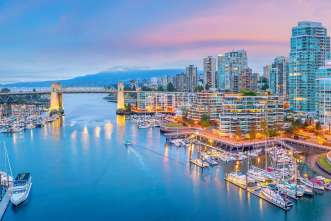
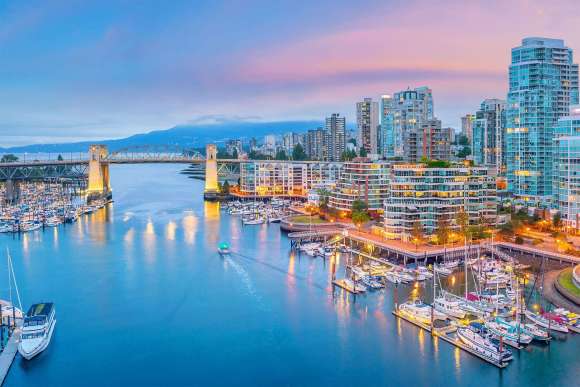
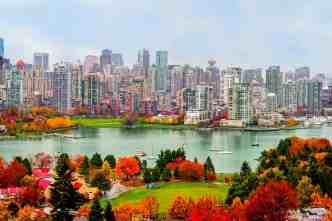
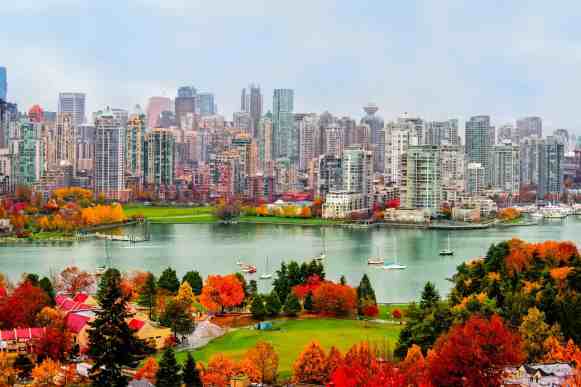








You have got to be kidding! Why would anyone want to move to Canada? People, like me, old immigrants, are trying to find ways to get out of Canada, not in. Shake your head, this country is not what the pretty pictures show. You will never be able to afford, let alone qualify for a “tear down” in White Rock BC, let alone a condo in a run down city anywhere in Canada. And after paying into the system for more than forty years, you will be unable to live on OAS and the CPP (retirement income) anywhere in Canada. The medical system has so many challenges it’s useless and good luck getting any help from anyone these days. Anyone reading this should really look at all the daily reports about
federal and provincial government corruption findings, because it’s worse than any country in Africa (I should know, I came from there many moons ago) and the taxes will finish you off.
Criminals have more rights than you will ever have here too, unless you plan to be a criminal.
The Canadian government is so inept it’s putting tampon dispensers in male bathrooms now, because they think (incorrectly) that men have monthly periods and need them! How stupid is that? The country is the most financialy broke and unproductive of all G7 countries. Seriously now you should really do your homework before thinking of even coming here, because they also have a departure tax on all your assets waiting for you when you finally figure it out and try to leave Canada permanently. How sick is that?
Biggest mistake I ever made was coming to Canada and I’m still paying for it, over 50 years later. Now if I can help just one person by pleading with them to do their homework, I will have saved one person from the guaranteed grief that moving to Canada will bring.
Don’t say you weren’t warned.
I’ll be on my way very, very, very soon.